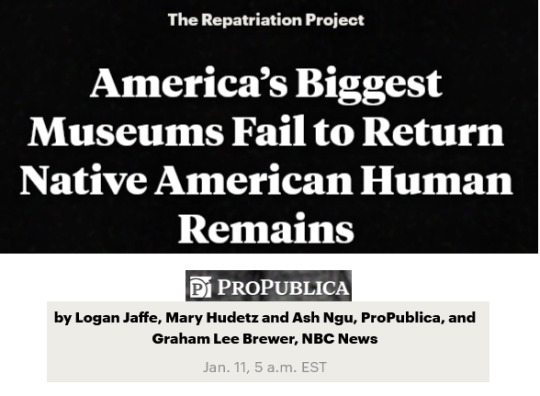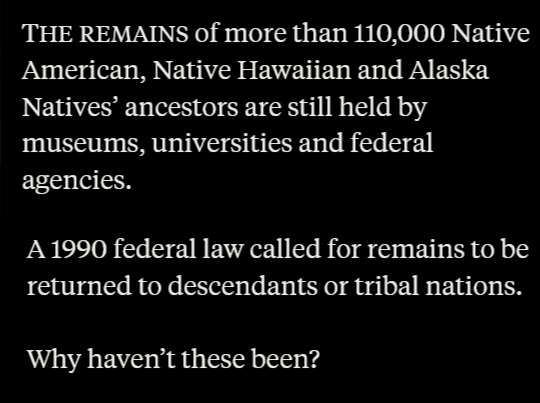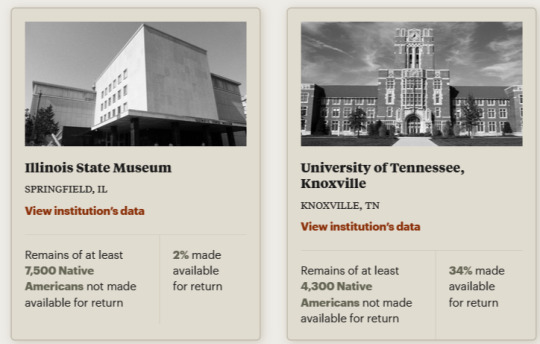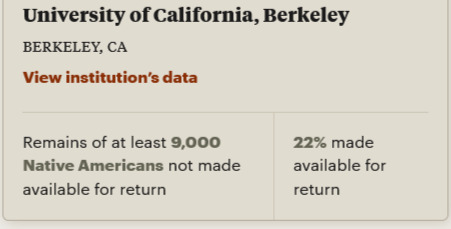#illinois state museum
Explore tagged Tumblr posts
Text

House Bill 3413 establishes procedures for handling human remains and gravesites that are uncovered in Illinois. This bill also authorizes the Department of Natural Resources to collaborate with the Illinois State Museum and Tribes with historical ties to Illinois to create a cemetery for the reburial of repatriated remains and materials
2 notes
·
View notes
Text

TIFFANY DOME at Marshall Fields (now Macy's) at State Street (south building) in Chicago, Illinois, USA
Installed: 1907, Designed by Louis C. Tiffany
It is both the first dome to be built in favrile iridescent glass and is the first and largest ceiling ever built in favrile glass. It contains over 1.6 million pieces, hand-blown by Tiffany's workshop. It took fifty men a year and a half to complete under Tiffany's supervision.
"Favrile" glass are handmade and the "iridescent effect" was obtained by mixing different colors of glass while hot. "Favrile iridescent glass" is a type of art glass patented in 1894 by Louis Comfort Tiffany... The Tiffany lamp photograph is thanks to the Virginia Museum of Fine Arts.
(Photo Courtesy: Susie Trexler
#macys#marshall fields#tiffany dome#chicago#illinois#united states#usa#Louis C. Tiffany#favril#glass#favril glass#tiffany lamp#virginia museum of fine arts#iridescent effect#iridescent
10 notes
·
View notes
Text

Stained glass by Tiffany at The Driehaus Museum, Chicago, Illinois, USA
121 notes
·
View notes
Text
This is a call to the void but why can't people/institutions capitalize the word Native?
#it's directly referring to a group of people#I'm not shocked that the Illinois State Museum website doesn’t capitalize Native good grief
2 notes
·
View notes
Text
History in my Backyard -Springfield, IL
Illinois’ capital city is full of reasons to visit. There are the Route 66 stops, plus all the government draws, but for me, the biggest pull in this Land of Lincoln is the history! While I have lived outside the city all of my adult life, I have learned I have not done, and seen it all! Hosted by Visit Springfield the last weekend in June, my husband Keith and I enjoyed a visit downtown and…
#16th president#Abraham Lincoln#Abraham Lincoln Presidential Museum#ALPLM#Arlington National Cemetery#author#black history#Charlie Parkers#Civil Rights#Dr. Gina Lathan#Dr. Stacy Grundy#Edwards Place#Edwards Place Historic Home#Elijah Iles House#Flag Lowering Ceremony#funeral train#Governor&039;s mansion#historial sites#history#History Comes alive#History Cooks#Ice Cream Social#Illinois Capital city#Illinois State Fairgrounds#Illinois State Military Museum#Illinois Veteran&039;s Memorials#Inn at 835#Kaitlyn Pottier#land of lincoln#Lincoln Across Bordwers
0 notes
Video
Sea of Love by Thomas Hawk
#America#Chicago#Cook County#Illinois#John G. Shedd Aquarium#Museum Campus Chicago#Shedd Aquarium#USA#United States#United States of America#aquarium#sea horse#flickr
0 notes
Text
I think our society/the internet has grown completely allergic to nuance in high-stakes situations and is all too comfortable sitting believing that it is impossible for two or more things to be true at the same time to different degrees. Frankly, it is terrifying.
#maybe this is because my state has comprehensive Holocaust education#if you are ever by Skokie Illinois go to their Holocaust museum#that is all
1 note
·
View note
Text
Two Blue-Eyed Cicadas found in Chicagoland, by the same family!
It was first discovered by four-year-old Jack Bailey, who found it in his family's yard in Wheaton, Illinois. His 14-year-old sister, Caroline, noticed its blue eyes and showed it to their mom, Greta Bailey.
They let the cicada go; then discovering how rare it was went to find it again. They either found the same one, or another blue-eyes.
In a different neighborhood, another blue-eyes was found 🩵
@onenicebugperday , @crevicedwelling
#cicada#a very nice bug#very nice bugs#cicadas#one of my favorite bugs#precious cicadas#chicagoland#my kind of town#blue eyed cicada
3K notes
·
View notes
Text
I'm trying to come up with something clever to say here but I feel like I've been hit by a truck. In a good way. I never thought anything like this would pass in the Midwest, not even in a blue state like IL, because it's simply not the kind of thing anybody campaigns on or even talks about at the gubernatorial level.
This is honestly the perfect legal addendum to NAGPRA, and I'm thrilled it's at the state level. This type of legislation would be way too complex at the federal level, but the individual state responsibilities are manageable, and more importantly, doable.
Here's some of the highlights of what the law does:
It is now the state's responsibility to help return ancestral remains, funerary objects and other important cultural items to tribal nations
The state must follow the lead of tribal nations throughout the repatriation process.
Money must be allocated as part of the state Repatriation and Reinterment Fund to help with the costs of reburial, tribal consultation and the repair of any damage to burial sites, remains or sacred items.
Criminal penalties for the looting and desecration of gravesites are increased, and the law adds a ban on profiteering from human remains and funerary objects through their sale, purchase or exhibition.
Tribal nations must be consulted as soon as possible when Indigenous gravesites are unintentionally disturbed or unearthed — such as during construction projects. (We already had kind of a version of this, but it wasn't strong enough.)
IDNR must set aside and maintain land solely for the reburial of repatriated Native American ancestors and their belongings, as tribal nations have pointed to the lack of protected places for reburial in Illinois as among the highest barriers to repatriation.
Institutions that display human remains that are Native American and any items that were originally buried with those individuals (funerary items) cannot charge admission. You want to display looted grave goods? No money for you. (This is specifically targeting the Dickinson Mounds Museum, which is... well, it started as a guy's private display of Native American skeletons he personally looted. The state took it over in the 90s, but they didn't rebury any of the 230~ human skeletons.)
My favorite comment is this: When asked about what he would say to museums that may push back against the law, Illinois State Rep. Mark L. Walker said: “Too bad.”
7K notes
·
View notes
Photo
I’ve been there a couple times! It’s a cool museum 👍



The Abraham Lincoln Presidential Museum, Springfield, Illinois
http://midwesternartlovertraveler.tumblr.com/
#architecture#museum#presidential museum#abraham lincoln presidential museum#abraham lincoln#history#american history#american president#united states of america#illinois
11 notes
·
View notes
Text

Beatles George Harrison Visited His Sister Louise in USA In 1963 SEP Twitter Reblogged
At the time of SEP 1963 The Beatles were unknown in USA Therefore Sister Louise sent to radios in Illinois State request Cards of BEATLES From Me To You
TAG of BEATLES in my Tumblr https://kichisaburo3.tumblr.com/tagged/BEATLES
- - - - - - - - - -
George Harrison travelled to the US to visit his sister Louise on this day in 1963 At the time the Beatles were relatively unknown in the US, and so George got his last taste of anonymity before the Beatles returned in the midst of Beatlemania less than a year later 🌟 pic.twitter.com/7BDhjieNCM
— Liverpool Beatles Museum (@beatlesmuseum_) September 16, 2020
- - - - - - - - - -
12 SEP 2024 Thursday
25 notes
·
View notes
Text
In January 2023, ProPublica has published a new and detailed report on the failure of United States museums and universities to repatriate human remains of Indigenous peoples, even when required by law.
Just ten institutions “hold about half of the Native American remains that have not been returned to tribes” as required by the 1990 law Native American Graves Protection and Repatriation Act. As of December 2022, about “200 institutions [...] had repatriated none of the remains of more than 14,000 Native Americans in their collections.” ProPublica has investigated whether or not these institutions have complied with the 1990 law, and, in their opening paragraphs, they have “found that a small group of institutions and government bodies has played an outsized role in the law’s failure.”
By the 1870s, as the academic field of archaeology soared in popularity, some of the most prestigious institutions in the US were relying on the US military to extract Indigenous items for their collections. For example, “the Smithsonian Institution struck a deal with U.S. Army Gen. William Tecumseh Sherman to pay each of his soldiers up to $500 — or roughly $14,000 in 2022 dollars — for items such as clothing, weapons and everyday tools sent back to Washington.”
Meanwhile: “Frederic Ward Putnam, who was appointed curator of Harvard University’s Peabody Museum of American Archaeology and Ethnology in 1875, commissioned and funded excavations that would become some of the earliest collections at Harvard, the American Museum of Natural History and the Field Museum. He also helped establish the anthropology department and museum at UC Berkeley — which holds more human remains taken from Native American gravesites than any other U.S. institution that must comply with NAGPRA.”
By the beginning of the 20th century, local museums in the Midwest and Southeast (Illinois, Ohio, Kentucky, and Tennessee) were obsessed with acquiring “moundbuilders” artifacts and initiated another wave of extraction. For example, most of the collections of the University of Kentucky’s William S. Webb Museum of Anthropology were taken during excavations funded by the federal government in the 1930s as part of the New Deal’s job-creation program, and although more than 80% of the museum’s holdings are “subject to return under federal law,” the museum “has yet to repatriate any of the roughly 4,500 human remains it has reported to the federal government.”
While the “Smithsonian Institution today holds in storage the remains of roughly 10,000 people, more than any other U.S. museum,” the Smithsonian actually “reports its repatriation progress under a different law” and therefore “does not publicly share information about what it has yet to repatriate with the same detail.”
According to ProPublica’s analysis, a major excuse given by institutions is that their collections are “culturally unidentifiable.” They report that “many institutions have interpreted” the words cultural affiliation “so narrowly that they’ve been able to dismiss” tribes’ claims. In other words, these museums claim that, because they cannot reliably trace a lineage between the original source of the remains and contemporary recognized tribes, they therefore cannot return remains. In this way, ProPublica says, that “[t]hroughout the 1990s, institutions including the Ohio History Connection and the University of Tennessee, Knoxville thrawted the repatriation process by categorizing everything” as “culturally unidentifiable.”
However, many tribes and their advocates claim this is a silly excuse. For example, the “University of Alabama Museums is among the institutions that have forced tribes into lengthy disputes over repatriation.” And tribes “had tried for more than a decade to repatriate Moundville ancestors.” By “October 2021, leaders from the Choctaw Nation of Oklahoma, Chickasaw Nation, Muscogee (Creek) Nation, Seminole Nation of Oklahoma, and the Seminole Tribe of Florida brought the issue to the federal NAGPRA Review Committee” and the “tribes eventually forced the largest repatriation in NAGPRA’s history” when “the university agreed to return the remains of 10,245 ancestors.”
Quoted excerpts above, and all graphics and excerpts below, from the report:
Logn Jaffe, Mary Hudetz, Ash Ngu, and Graham Lee Brewer. “America’s Biggest Museums Fail to Return Native American Human Remains.” ProPublica. 11 January 2023. (Illustrations by Weshoyot Alvitre for ProPublica. Design and development by Anna Donlan. Asia Fields and Brooke Stephenson contributed reporting.)











505 notes
·
View notes
Text
Mike Hixenbaugh at NBC News:
METROPOLIS, Ill. — The pastor began his sermon with a warning. Satan was winning territory across America, and now he was coming for their small town on the banks of the Ohio River in southern Illinois. “Evil is moving and motivated,” Brian Anderson told his congregation at Eastland Life Church on the evening of Jan. 13. “And the church is asleep.” But there was still time to fight back, Anderson said. He called on the God-fearing people of Metropolis to meet the enemy where Satan was planning his assault: at their town’s library. A public meeting was scheduled there that Tuesday, and Christians needed to make their voices heard. Otherwise, Anderson said, the library would soon resemble a scene “straight out of Sodom and Gomorrah.” The pastor’s call to action three months ago helped ignite a bitter fight that some locals have described as “a battle for the soul” of Metropolis.
The dispute has pitted the city’s mayor, a member of Eastland Life Church, against his own library board of trustees. It led to the abrupt dismissal of the library director, who accused the board of punishing her for her faith. And last month, it drew scrutiny from the state’s Democratic secretary of state, who said the events in Metropolis “should frighten and insult all Americans who believe in the freedom of speech and in our democracy.” Similar conflicts have rocked towns and suburbs across the country, as some conservatives — convinced that Democrats want to "sexualize" and indoctrinate children — have sought to purge libraries of books featuring LGBTQ characters and storylines. Republican state legislatures have taken up a wave of bills making it easier to remove books and threatening librarians with criminal charges if they allow minors to access titles that include depictions of sex.
To counter this movement, Illinois Democrats last year adopted the first state law in the nation aimed at preventing book bans— which ended up feeding the unrest in Metropolis. Under the law, public libraries can receive state grant funding only if they adhere to the Library Bill of Rights, a set of policies long promoted by the American Library Association to prevent censorship.
Many longtime residents were stunned when these national fissures erupted in Metropolis, a quirky, conservative city of about 6,000 people that has a reputation for welcoming outsiders. Because of its shared name with the fictional city from DC Comics, Metropolis has for the past half century marketed itself as “Superman's hometown.” Tens of thousands of tourists stop off Interstate 24 each year to pose beneath a 15-foot Superman statue at the center of town, to attend the summertime Superman Celebration, or to browse one of the world’s largest collections of Superman paraphernalia at the Super Museum.
“Where heroes and history meet on the shores of the majestic Ohio River,” the visitor’s bureau beckons, “Metropolis offers the best small-town America has to offer.” But lately, the pages of the Metropolis Planet — yes, even the masthead of the local newspaper pays homage to Clark Kent — have been filled with strife. Unlike in comic books and the Bible, the fight in Metropolis doesn’t break along simple ideological lines. Virtually everyone on either side of the conflict identifies as a Christian, and most folks here vote Republican. The real divide is between residents who believe the public library should adhere to their personal religious convictions, and those who argue that it should instead reflect a wide range of ideas and identities.
During his sermon in January and in the months since, Anderson has cast his congregation and their God as righteous defenders of Metropolis — and the Library Bill of Rights and its supporters as forces of evil. If Christians didn’t take a stand, Anderson warned, there would soon be an entire children’s section at the library “dedicated to sexual immorality and perversion.” And before long, he said, the town would be hosting “story hour with some guy that thinks he’s a girl.”
[...] A week later, the board went into a closed session and presented Baxter with an ultimatum: If she wanted to keep her job, she needed to sign a performance improvement plan. It stipulated that she would abide by the Library Bill of Rights, seek state grant funding and discontinue praying aloud with children and other religious activities at the library. Baxter refused to sign and began to criticize the board. Voices were raised, according to three members. After a few minutes, James, the board president, slammed her fist on the table. “This is not up for debate, Rosemary,” she said. “Either sign it, or don’t.” Baxter stood up and left. Minutes later, the board came out of closed session. By a vote of 5-3, they terminated Baxter’s employment. Baxter’s departure left the library in turmoil. Four employees resigned soon after, and the board got to work picking up the pieces. They brought on a former library employee to serve as interim director and embarked on top-to-bottom reviews of the library’s catalog and finances. “Our focus,” James said, “is making sure our library is strong and healthy and there to serve everyone.” Then, on March 19, the story of Baxter’s firing was picked up by Blaze Media, a national conservative outlet. In a column titled, “A librarian’s faithful service is silenced by a secularist takeover,” conservative talk radio host Steve Deace interviewed Baxter and Anderson and reported that both had come under fire for their Christian beliefs.
Deace presented the local saga as a warning that evil forces were now coming for small-town America and blamed the problems in Metropolis, in part, on “a California transplant who is living with another man,” referring to Loverin, the library board member. Three days later, Metropolis Mayor Don Canada — who in 2021 had appointed Anderson, his pastor, to an open seat on the City Council — took a stand of his own. In letters addressed to James and two other board members, Canada announced that he’d “lost faith in the Board in its current state.” As a result, he was removing James and two others who’d voted to terminate Baxter.
In Superman's alleged hometown of Metropolis, Illinois, the town has been engulfed with strife over conflicts on the direction of the town's public library, with Eastland Life Church Pastor Brian Anderson leading a war against the library as part of the faux moral panic about LGBTQ+ books that right-wingers falsely claim such books "sexualize" children.
#Metropolis Illinois#Illinois#Libraries#Book Bans#Book Banning#Public Libraries#Anti LGBTQ+ Extremism#Eastland Life Church#Brian Anderson#Alexi Giannoulias#Illinois HB2789#American Library Association#Metropolis Public Library#Rhonda James#Rosemary Baxter#Library Bill of Rights#Culture Wars#Steve Deace#Don Canada#Library Boards
37 notes
·
View notes
Text
Illinois Route 66 - Preparing for 100
In 2026, the Mother Road will celebrate a centennial birthday! Springfield, Illinois, and local communities are preparing for the big celebration. Recently, my husband Keith and I were privileged to be hosted by Visit Springfield. We toured some of the new sites, and revisited Route 66 icons! Come with me and see what is out there to sight see down the highway that beat all the highways ever…
#Ace Sign Museum#arts#auburn#bandstand#Belle Miller#blues#Bob Waldmire#breakfast horseshoe#Central Illinis African History Museum#Chain of Rocks Bridge#Charlie Parkers#Chatham#Chef Kris#Chef Michael Wiggins#Chicago#Cindy and Mike Murphy#Civil Rights#Cozy Dog#Dennis Bringuet#Dr. Gina Lathan#Dr. Stacy Grundy#Farmersville#highway#historic brick road#history of the horseshoe#horseshoe#Horseshoe trail#Illinois Route 66#Illinois State Fair Grounds#Inn at 835
0 notes
Video
I Don't Believe in an Interventionist God by Thomas Hawk
#America#Chicago#Cnidaria#Cook County#Illinois#John G. Shedd Aquarium#Museum Campus Chicago#Shedd Aquarium#USA#United States#United States of America#aquarium#jellies#jelly fish#flickr
1 note
·
View note